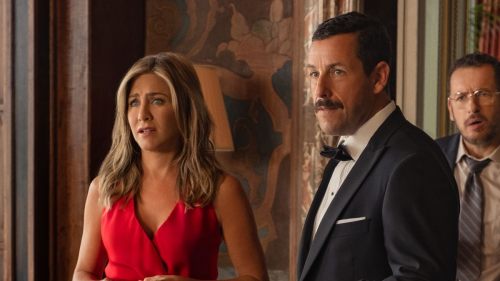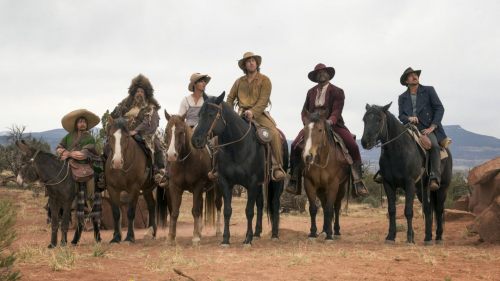A 2018 Industry Recap: It Was The Best Of Times, It Was The Worst Of Times
The music industry has always trended ahead of the film industry. As such, twenty years ago we had a decent idea of what the current movie industry would look like. It was the early '90s when music went to digital, but it took more than a decade for film to start moving from analog to digital with DVDs entering the marketplace and digital projection being introduced with The Phantom Menace in 1999. Music moved to a subscription digital marketplace in 2001, so we could guess movies would follow. They did. Now that we’re here, what does that mean for the present and the future? Let’s look at the major events and trends from 2018.
I want to focus mostly on home entertainment for this piece, but it’s important to note that theaters had their all-time best domestic box office year with studio franchise tentpoles being more important than ever. Black Panther was the surprise number one film, and its $700m domestic total pushed 2018 to new highs, even if it was all tentpoles. You must go to #13 with Bohemian Rhapsody, #14 with A Quiet Place and #16 with Rich Crazy Asians to find the first original movies in the top 20. In fact, only four titles in the top 20 from 2018 were original to film and not remakes, sequels or prequels. I would be remiss if I didn’t notice that diversity played a significant part in having Black Panther, Crazy Rich Asians, and Bohemian Rhapsody succeed.
Back in January, we learned that Paramount had sold the newest Cloverfield movie to Netflix because they believed they would lose money on it theatrically due to bad reviews. Well, they were right. Critics hated it, but audiences didn’t, and it was both a hit for Netflix and a great PR talking point. Paramount continued to use Netflix to offload their risky titles by signing an output deal with them which they stated was to produce content. But since the first title in the deal is a film they produced for theatrical release, Eli, it's more likely they’ll use it to dump movies that don’t test well theatrically. I’ve written before about why this is a bad long term strategy for Paramount, who rebounded from their worst box office year ever thanks to Mission: Impossible Fallout and A Quiet Place but are still sixth out the six major studios (I’m including Lionsgate) and have very little franchise content they own. This strategy continues to empower Netflix long-term even if Film Twitter has a perception of Netflix as a dumping ground. On average, mainstream audiences will like anything that looks and feels like a studio production, especially if it has major stars in it or is high-concept sci-fi. For the critics, this continues to be the source of jokes, but it also drives significant subscribers to Netflix which can only hurt Paramount and the studio system in the long run.
Paramount and Netflix weren’t the only major theatrical/digital deals in 2018. Blumhouse got in bed with Amazon to make several films Amazon wants to call “thrillers”. Blumhouse is widely known for their successful horror productions (most notably Halloween made almost $160m domestically and Get Out made a ton and won Jordan Peele an Oscar). What’s less known is they are terrific at making a lot of content and finding the right way to release all of it. They have their own distribution label, Tilt, which had one hit this year with Upgrade and one miss with Unfriended: Dark Web. They also produce content that goes directly to streaming like the effective horror flick Cam which Netflix bought prior to its successful festival run. Essentially, Amazon is just providing a platform for content that Blumhouse already produces that’s not theatrical enough like their high-end horror films.
A24 and Apple also signed a deal. A24 has been excellent in finding revenue streams outside of theatrical to ensure their well-received but risky slate has a safety net. Before we even knew who A24 was, they did a deal with Direct TV for direct to VOD content that would give them steady revenue to help pay for their theatrical releases. This has augmented their productions (like Hereditary and Moonlight) to include foreign language acquisitions and even more niche theatrical films from auteur filmmakers like Gasper Noe, Claire Denis and Peter Strickland. There’s been a lot of speculation that Apple (or Amazon) would buy A24, and this deal is possibly the result of it. This deal is another win/win for A24 and a win for Apple who needs fresh content as they launch their own movie service. A24 again gets a steady stream of revenue for content that may not work theatrically, which allows them to continue to gamble with content they love in theatrical release.
We’ve also seen that Disney and Warner are getting ready to launch their big streaming platforms in 2019. Disney announced several Star Wars and Marvel shows that will drive a lot of attention, but they are also getting a lot of live-action direct-to-streaming films into production that are both family-friendly and representations of diversity. Warner is wisely (although with some considerable protest from the 50k or so Filmstruck subscribers) moving all its content under one roof, shuttering all their a la carte services like Filmstruck. HBO will have to stay separate for now, as it's still heavily reliant on folks who subscribe to HBO through cable and satellite packages.
These deals are all important because they show us where we are and where we’re going. Earlier I said we knew we would eventually be in an all-digital distribution world. Now we know exactly what it looks like. Netflix and the streaming world are dominating everything and continues to change consumer behavior to the cheapest revenue stream – the all-you-can-eat model. Because content is now so cheap to consume, it’s creating a new dichotomy between the big franchise tentpoles that are using a worldwide theatrical release to drive all their exploitation, and essentially direct-to-streaming releases. While there is still content in the middle, there's less and less every year because even that world is shifting to the few rather than the many.
Yes, it’s true, there are still hits from non-franchise films, some of which we’ve discussed above. We also sang A24 praises above and should note that both Bleecker Street and NEON have had success in a theatrical space that targets a specific theatrical audience (either the 18-44 group for NEON and A24 or the over 55 group for Bleecker). It’s worth pointing out that all three of these companies have the rarest commodity these days – an output deal with a major streaming platform that both pays them a significant license fee that’s based on domestic box office and a fee floor that gives them guaranteed revenue with every title. This allows them to spend more than say a Kino or an Oscilloscope that can’t take risks with theatrical P&A. On one hand, the indie content is great if it's flowing through these companies. But if it's not, then it's tougher.
This separation of the have and have nots is playing out with the big companies too. Warner ditched Filmstruck. Amazon moved away from making movies like The Big Sick and Manchester By the Sea. Films that, even if they were hits in theatrical space, weren’t making their Amazon Prime subscribers happy. We saw this play out as Amazon refused to support Suspiria or You Were Never Really Here with a big, expensive release that they previously supplied niche content like Neon Demon. Amazon also stopped giving out license fees to content playing in major festivals starting with 2018’s Toronto Fest after giving movies like Thunder Road a six-figure license fee for winning the jury prize at last year’s SXSW. Amazon, Hulu and Netflix are all heavily invested in the content they produce themselves and less interested in third party license deals.
So, we knew the world was going digital. In 2018, we have a really good idea what that looks like for the present and the near future. Studios (Disney, Warner/AT&T and Universal/Comcast) with significant franchise content will dominate and Paramount, Lionsgate and Sony (who has Spider-Man and Jumanji and that’s it) will continue to stare at the abyss on a year-to-year basis. I wouldn’t be shocked if any of them sell to a rising digital studio like Amazon or Netflix in 2019 or 2020. Netflix continues to pace the world where more and more consumers are watching more and more content. The indie space is also being dominated by a world where either Netflix buys all rights, A24/NEON/Bleecker fall in love with you and want to give you a theatrical release, or you’re looking at a small if any release, which is restricting how much indie product gets out there. Maybe Apple is really going to get invested in indie films to bring another player to the table. One is sorely needed. But it’s a wait and see, as we don’t really know what their library will look like yet.
The industry isn’t at a crossroads anymore. Netflix and Disney have basically won (and are more invested in what the other does than their competitors in their respective worlds) and are setting the pace for everyone else. It's either franchise content or not. It’s either good enough for the handful of successful indie players or it’s not. It was the best of times, and it was the worst of times.



